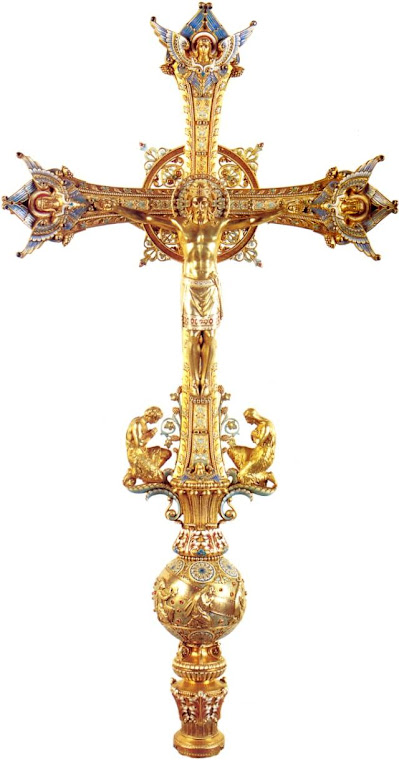Hijo de Antonio María Becciu y Antonina Curzu (ambos fallecidos)Después de ver el trabajo explotar y arrasar el mundo, la pereza parece madre de las virtudes (NEI, 180d).
St. Vitalis, Martyr
About the Year 62.
ST. VITALIS is honoured as the principal patron of the city of Ravenna, in which he glorified God by martyrdom in the persecution of Nero. He was a citizen of Milan, and is said in his acts to have been the father of SS. Gervasius and Protasius. The divine providence conducted him to Ravenna, where he saw a Christian named Ursicinus, who was condemned to lose his head for his faith, standing aghast at the sight of death, and seeming ready to yield. Happy is he who, by a perfect diffidence in himself and a sincere humility, obtains strength and comfort from above in the fiery trials of his last conflicts; when the devil rages with the greatest fury, knowing that he has only a little time to compass the ruin of a soul for ever. Vitalis was extremely moved at this spectacle. The honour of God, which was in danger of being insulted by sin, and the soul of a brother in Christ which appeared to be upon the very brink of apostacy, were alarming objects to awaken his zeal. He who dreaded the presumption of rashly seeking the combat, knew his double obligation of preferring the glory of God, and the eternal salvation of his neighbour to his own corporal life: he therefore boldly and successfully encouraged Ursicinus to triumph over death, and after his martyrdom, carried off his body, and respectfully interred it. The judge, whose name was Paulinus, being informed of what he had done, caused him to be apprehended, stretched on the rack, and, after other torments, to be buried alive in a place called the Palm-tree, in Ravenna, as Fortunatus and his acts relate. These acts add that his wife, Valeria, returning from Ravenna to Milan was beaten to death by certain peasants, because she refused to join them in an idolatrous festival and riot. The relics of St. Vitalis are deposited in the great church which bears his name in Ravenna, and was magnificently built by the emperor Justinian, in 547. It belongs to a noble Benedictin abbey, where in a ruinous private chapel are shown the tombs of the emperor Honorius, and of the princes and princesses of his family. 1
We are not all called to the sacrifice of martyrdom; but all are bound to make their whole lives a continued sacrifice of themselves to God, and to perform every action in this perfect spirit of sacrifice. An ardent desire of devoting ourselves totally to God in life and in death, and a cheerful readiness to do and to suffer whatever he requires of us, in order constantly to accomplish his divine will, is a disposition which ought to accompany and to animate all our actions. The perfection of our sacrifice depends on the purity, fervour, and constancy of this desire. We must in particular make our bodies and our souls with all their faculties continual victims to God: our bodies by patient suffering, voluntary mortification, chastity, temperance, and penitential labour: our souls by a continual spirit of compunction, adoration, love, and praise. Thus we shall both live and die to God, perfectly resigned to his holy will in all his appointments. 2
Rev. Alban Butler (1711–73). Volume IV: April. The Lives of the Saints. 1866. April 28.





No hay comentarios:
Publicar un comentario
Los comentarios deberán relacionarse con el artículo. Los administradores se reservan el derecho de publicación, y renuncian a TODA responsabilidad civil, administrativa, penal y canónica por el contenido de los comentarios que no sean de su autoría. La blasfemia está estrictamente prohibida, y los insultos a la administración constituyen causal de no publicación.
Comentar aquí significa aceptar las condiciones anteriores. De lo contrario, ABSTENERSE.
+Jorge de la Compasión (Autor del blog)
Jorge Rondón Santos (Editor colaborador)